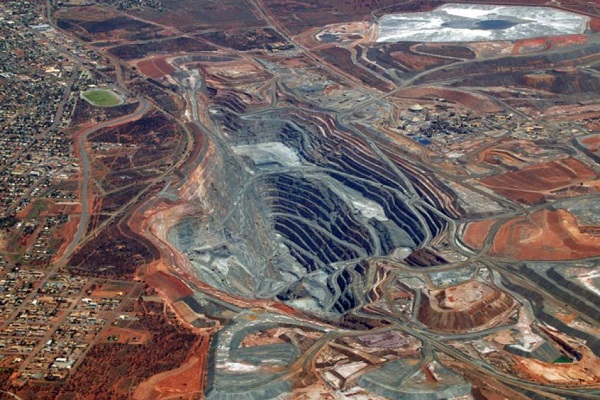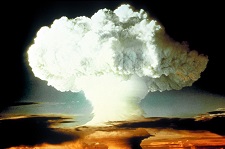In Goodbye Holocene, hello Anthropocene? I outlined the process being undertaken to consider whether the Holocene should give way to the Anthropocene. Now a few articles have appeared making the case.
Sam Wong in New Scientist give seven reasons:
1. Nuclear weapons
Since the middle of last century nuclear bombs have been exploded leaving a global signature of isotopes such as carbon-14 and plutonium-239.
2. Fossil fuels
If any ice cores remain they will show the signature of carbon emissions, greater than in the last 65 million years.
- Burning fossil fuels has also increased the ratio of carbon-12 to carbon-13 isotopes, which will be detectable in tree rings, limestone, and fossilised bones and shells.
3. New materials
These include plastics, aluminium and concrete. We have produced around 500 million tonnes of aluminium, we produce 500 million tonnes a year of plastics. Concrete is the big one.
- We have now produced about 50 billion tonnes of the stuff – enough to spread a kilogram on every square metre of Earth – and more than half of that was made in the last 20 years.
4. Changed geology
- Every time we destroy a patch of rainforest, this changes the future of Earth’s geology. So far, we have transformed more than 50 per cent of Earth’s land area for our own purposes. Deforestation, farming, drilling, mining, landfills, dam-building and coastal reclamation are all having widespread effects on sedimentary processes, disrupting how layers of rock are laid down, which will be detectable thousands of years in the future.
5. Fertilisers
Levels of nitrogen and phosphorus in soils have doubled in the last century because of our increased use of fertilisers.
6. Global warming
Oxygen isotopes will reflect the warming in any residual ice. Also rising sea levels will be obvious.
7. Mass extinctions
Mass extinctions often happen at the change of geological periods. A mass extinction of species is now underway.
Sara Phillips at the ABC looks at 10 ways the scientists say humans will leave behind fossils.
She lists some of the same, but adds rubbish tips. Much of our rubbish will persist and we will be known by it, if in no other way.
Bones left behind will be dominated by us and our domestic animals.
Soot comes under fossil fuels in Wong’s list, but Philips makes special mention of it.
Here’s an impressive image of how we’ve changed the landscape:


